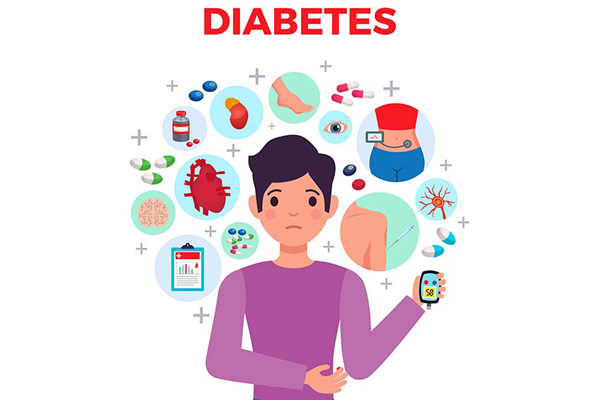




DR. C. MURALIDHARAN
M.B.B.S., G.Dip.Diab,(Australia)., M.B.A.,
Secretary -2022/2025 RSSDI Tamilnadu chapter
Senior Consultant Diabetologist
Foot Care and Obesity Consultant
* Gestational Diabetes
* Diabetes Prevention
* Preventive Cardiology
Vijaya Clinic Diabetes Care Centre
Dindigul Diabetic Education and Research Centre (DDEARC)
Dindigul.
Teaching Faculty of Diploma program of Diabetology, Annamalai university, Tamilnadu(2005-2007).
Certified Trainer: National Diabetes Educator Programme.
Making Tremendous Contribution as trainer of NDEP the largest initiative of its kind in the world - To Train Diabetes Educators in India.
Speaker/Chair Person for Diabetic Symposia, Diabetic Conferences and Workshops at the Regional and National Level since 20 years.
On 04-04-2015, we screened 26171 persons for Diabetes(Blood Sugar Testing) in a single day from 8.30Am to 4.30Pm in Karur.It was Considered for Guiness World Record by the Representatives of Guiness World Record. This was Organised by Honourable Minister Of Tamilnadu Mr.Senthil Balaji.



Best Doctor Award by IMA Tamilnadu State Branch in 2012.
Diabetes Awareness Initiative Award - 2017 by Diabetes India New Delhi .
Best Doctor Award - 2018 by Tamilnadu Government.
Best Community Service Award - 'PRIMER 2020'
Service Award from MR.Murugaiah District Collector Dindigul during the Independence Day Celebrations
RSSDI - USV Award for best Innovation in Diabetes Care in Challenging Situation 2021.
Lots of Awards from Various Organisations.
Various Awards from Rotary International RI District 3000(2018-2019)
1. Best President
2. Best Club in Rainbow
3. Best Club in Membership Growth.
Free Consultation on Designated Days.

Lose extra weight, Be more physically active, Eat healthy plant foods, Eat healthy fats.
Telemedicine systems allow health care professionals to evaluate, diagnose and treat patients .
Mobile clinics are customized vehicles that travel to the heart of communities, both urban and rural.
Also known as juvenile diabetes, this type occurs when the body fails to produce insulin. People with type I diabetes are insulin-dependent, which means they must take artificial insulin daily to stay alive.
Type 2 diabetes affects the way the body uses insulin. While the body still makes insulin, unlike in type I, the cells in the body do not respond to it as effectively as they once did. This is the most common type of diabetes, according to the National Institute of Diabetes and Digestive and Kidney Diseases, and it has strong links with obesity.
This type occurs in women during pregnancy when the body can become less sensitive to insulin. Gestational diabetes does not occur in all women and usually resolves after giving birth.
Neonatal diabetes mellitus is a rare form of diabetes that occurs within the first 6 months of life. Our bodies need insulin to help our cells make energy. Infants with this condition do not produce enough insulin, which increases blood glucose levels.

